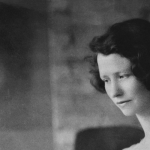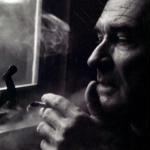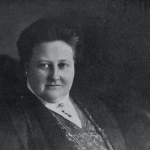from The Prodigal: 11 by Derek Walcott

I
The dialect of the scrub in the dry season
withers the flow of English. Things burn for days
without translation, with the heat
of the scorched pastures and their skeletal cows.
Every noun is a stump with its roots showing,
and the creole language rushes like weeds
until the entire island is overrun,
Read Poem The dialect of the scrub in the dry season
withers the flow of English. Things burn for days
without translation, with the heat
of the scorched pastures and their skeletal cows.
Every noun is a stump with its roots showing,
and the creole language rushes like weeds
until the entire island is overrun,
0
Hymn to Life by James Schuyler

The wind rests its cheek upon the ground and feels the cool damp
And lifts its head with twigs and small dead blades of grass
Pressed into it as you might at the beach rise up and brush away
The sand. The day is cool and says, “I’m just staying overnight.”
The world is filled with music, and in between the music, silence
And varying the silence all sorts of sounds, natural and man made:
There goes a plane, some cars, geese that honk and, not here, but
Not so far away, a scream so rending that to hear it is to be
Read Poem And lifts its head with twigs and small dead blades of grass
Pressed into it as you might at the beach rise up and brush away
The sand. The day is cool and says, “I’m just staying overnight.”
The world is filled with music, and in between the music, silence
And varying the silence all sorts of sounds, natural and man made:
There goes a plane, some cars, geese that honk and, not here, but
Not so far away, a scream so rending that to hear it is to be
0
Renascence by Edna St. Vincent Millay

All I could see from where I stood
Was three long mountains and a wood;
I turned and looked another way,
And saw three islands in a bay.
So with my eyes I traced the line
Of the horizon, thin and fine,
Straight around till I was come
Back to where I'd started from;
And all I saw from where I stood
Was three long mountains and a wood.
Over these things I could not see;
These were the things that bounded me;
And I could touch them with my hand,
Almost, I thought, from where I stand.
Read Poem Was three long mountains and a wood;
I turned and looked another way,
And saw three islands in a bay.
So with my eyes I traced the line
Of the horizon, thin and fine,
Straight around till I was come
Back to where I'd started from;
And all I saw from where I stood
Was three long mountains and a wood.
Over these things I could not see;
These were the things that bounded me;
And I could touch them with my hand,
Almost, I thought, from where I stand.
0
Song: “When that I was and a little tiny boy (With hey, ho, the wind and the rain)” by William Shakespeare

(from Twelfth Night) When that I was and a little tiny boy,
With hey, ho, the wind and the rain,
A foolish thing was but a toy,
For the rain it raineth every day.
Read Poem With hey, ho, the wind and the rain,
A foolish thing was but a toy,
For the rain it raineth every day.
0
Venus and Adonis by William Shakespeare

Even as the sun with purple-colour’d face
Had ta’en his last leave of the weeping morn,
Rose-cheek’d Adonis tried him to the chase;
Hunting he lov’d, but love he laugh’d to scorn;
Sick-thoughted Venus makes amain unto him,
And like a bold-fac’d suitor ‘gins to woo him.
‘Thrice fairer than myself,’ thus she began,
Read Poem Had ta’en his last leave of the weeping morn,
Rose-cheek’d Adonis tried him to the chase;
Hunting he lov’d, but love he laugh’d to scorn;
Sick-thoughted Venus makes amain unto him,
And like a bold-fac’d suitor ‘gins to woo him.
‘Thrice fairer than myself,’ thus she began,
0
Counselors by Robert Fitzgerald

Whom should I consult? Philosophers
Are happy in their homes and seminars.
See this one with the mischievous bright childlike
Gaze going out through walls and air,
A tangent to the bent rays of the star.
Hear the chalk splutter, hear the groping voice:
Conceive the demiurge in his perpetual
Strife with the chaos of the universe,
Read Poem Are happy in their homes and seminars.
See this one with the mischievous bright childlike
Gaze going out through walls and air,
A tangent to the bent rays of the star.
Hear the chalk splutter, hear the groping voice:
Conceive the demiurge in his perpetual
Strife with the chaos of the universe,
0
No Moon Floods the Memory of That Night by Etheridge Knight

No moon floods the memory of that night
only the rain I remember the cold rain
against our faces and mixing with your tears
only the rain I remember the cold rain
and your mouth soft and warm
no moon no stars no jagged pain
of lightning only my impotent tongue
and the red rage within my brain
Read Poem only the rain I remember the cold rain
against our faces and mixing with your tears
only the rain I remember the cold rain
and your mouth soft and warm
no moon no stars no jagged pain
of lightning only my impotent tongue
and the red rage within my brain
0
Passages from Virgil’s First Georgic by Robert Fitzgerald

I. Until Jove let it be, no colonist
Mastered the wild earth; no land was marked,
None parceled out or shared; but everyone
Looked for his living in the common world.
And Jove gave poison to the blacksnakes, and
Made the wolves ravage, made the ocean roll,
Knocked honey from the leaves, took fire away—
So man might beat out various inventions
Read Poem Mastered the wild earth; no land was marked,
None parceled out or shared; but everyone
Looked for his living in the common world.
And Jove gave poison to the blacksnakes, and
Made the wolves ravage, made the ocean roll,
Knocked honey from the leaves, took fire away—
So man might beat out various inventions
0
Towns in Colour by Amy Lowell

I Red Slippers
Red slippers in a shop-window, and outside in the street, flaws of grey, windy sleet!
Behind the polished glass, the slippers hang in long threads of red, festooning from the ceiling like stalactites of blood, flooding the eyes of passers-by with dripping colour, jamming their crimson reflections against the windows of cabs and tram-cars, screaming their claret and salmon into the teeth of the sleet, plopping their little round maroon lights upon the tops of umbrellas.
The row of white, sparkling shop fronts is gashed and bleeding, it bleeds red slippers. They spout under the electric light, fluid and fluctuating, a hot rain—and freeze again to red slippers, myriadly multiplied in the mirror side of the window.
They balance upon arched insteps like springing bridges of crimson lacquer; they swing up over curved heels like whirling tanagers sucked in a wind-pocket; they flatten out, heelless, like July ponds, flared and burnished by red rockets.
Snap, snap, they are cracker-sparks of scarlet in the white, monotonous block of shops.
They plunge the clangour of billions of vermilion trumpets into the crowd outside, and echo in faint rose over the pavement.
People hurry by, for these are only shoes, and in a window, farther down, is a big lotus bud of cardboard whose petals open every few minutes and reveal a wax doll, with staring bead eyes and flaxen hair, lolling awkwardly in its flower chair.
One has often seen shoes, but whoever saw a cardboard lotus bud before?
The flaws of grey, windy sleet beat on the shop-window where there are only red slippers.
II Thompson’s Lunch Room—Grand Central Station
Study in Whites
Wax-white—
Floor, ceiling, walls.
Ivory shadows
Over the pavement
Polished to cream surfaces
By constant sweeping.
The big room is coloured like the petals
Of a great magnolia,
And has a patina
Of flower bloom
Which makes it shine dimly
Under the electric lamps.
Chairs are ranged in rows
Like sepia seeds
Waiting fulfilment.
The chalk-white spot of a cook’s cap
Moves unglossily against the vaguely bright wall—
Dull chalk-white striking the retina like a blow
Through the wavering uncertainty of steam.
Vitreous-white of glasses with green reflections,
Ice-green carboys, shifting—greener, bluer—with the jar of moving water.
Jagged green-white bowls of pressed glass
Rearing snow-peaks of chipped sugar
Above the lighthouse-shaped castors
Of grey pepper and grey-white salt.
Grey-white placards: “Oyster Stew, Cornbeef Hash, Frankfurters”:
Marble slabs veined with words in meandering lines.
Dropping on the white counter like horn notes
Through a web of violins,
The flat yellow lights of oranges,
The cube-red splashes of apples,
In high plated épergnes.
The electric clock jerks every half-minute:
“Coming!—Past!”
“Three beef-steaks and a chicken-pie,”
Bawled through a slide while the clock jerks heavily.
A man carries a china mug of coffee to a distant chair.
Two rice puddings and a salmon salad
Are pushed over the counter;
The unfulfilled chairs open to receive them.
A spoon falls upon the floor with the impact of metal striking stone,
And the sound throws across the room
Sharp, invisible zigzags
Of silver.
III An Opera House
Within the gold square of the proscenium arch,
A curtain of orange velvet hangs in stiff folds,
Its tassels jarring slightly when someone crosses the stage behind.
Gold carving edges the balconies,
Rims the boxes,
Runs up and down fluted pillars.
Little knife-stabs of gold
Shine out whenever a box door is opened.
Gold clusters
Flash in soft explosions
On the blue darkness,
Suck back to a point,
And disappear.
Hoops of gold
Circle necks, wrists, fingers,
Pierce ears,
Poise on heads
And fly up above them in coloured sparkles.
Gold!
Gold!
The opera house is a treasure-box of gold.
Gold in a broad smear across the orchestra pit:
Gold of horns, trumpets, tubas;
Gold—spun-gold, twittering-gold, snapping-gold
Of harps.
The conductor raises his baton,
The brass blares out
Crass, crude,
Parvenu, fat, powerful,
Golden.
Rich as the fat, clapping hands in the boxes.
Cymbals, gigantic, coin-shaped,
Crash.
The orange curtain parts
And the prima-donna steps forward.
One note,
A drop: transparent, iridescent,
A gold bubble,
It floats . . . floats . . .
And bursts against the lips of a bank president
In the grand tier.
IV Afternoon Rain in State Street
Cross-hatchings of rain against grey walls,
Slant lines of black rain
In front of the up and down, wet stone sides of buildings.
Below,
Greasy, shiny, black, horizontal,
The street.
And over it, umbrellas,
Black polished dots
Struck to white
An instant,
Stream in two flat lines
Slipping past each other with the smoothness of oil.
Like a four-sided wedge
The Custom House Tower
Pokes at the low, flat sky,
Pushing it farther and farther up,
Lifting it away from the house-tops,
Lifting it in one piece as though it were a sheet of tin,
With the lever of its apex.
The cross-hatchings of rain cut the Tower obliquely,
Scratching lines of black wire across it,
Mutilating its perpendicular grey surface
With the sharp precision of tools.
The city is rigid with straight lines and angles,
A chequered table of blacks and greys.
Oblong blocks of flatness
Crawl by with low-geared engines,
And pass to short upright squares
Shrinking with distance.
A steamer in the basin blows its whistle,
And the sound shoots across the rain hatchings,
A narrow, level bar of steel.
Hard cubes of lemon
Superimpose themselves upon the fronts of buildings
As the windows light up.
But the lemon cubes are edged with angles
Upon which they cannot impinge.
Up, straight, down, straight—square.
Crumpled grey-white papers
Blow along the side-walks,
Contorted, horrible,
Without curves.
A horse steps in a puddle,
A white, glaring water spurts up
In stiff, outflaring lines,
Like the rattling stems of reeds.
The city is heraldic with angles,
A sombre escutcheon of argent and sable
And countercoloured bends of rain
Hung over a four-square civilization.
When a street lamp comes out,
I gaze at it for full thirty seconds
To rest my brain with the suffusing, round brilliance of its globe.
V An Aquarium
Streaks of green and yellow iridescence,
Silver shiftings,
Rings veering out of rings,
Silver—gold—
Grey-green opaqueness sliding down,
With sharp white bubbles
Shooting and dancing,
Flinging quickly outward.
Nosing the bubbles,
Swallowing them,
Fish.
Blue shadows against silver-saffron water,
The light rippling over them
In steel-bright tremors.
Outspread translucent fins
Flute, fold, and relapse;
The threaded light prints through them on the pebbles
In scarcely tarnished twinklings.
Curving of spotted spines,
Slow up-shifts,
Lazy convolutions:
Then a sudden swift straightening
And darting below:
Oblique grey shadows
Athwart a pale casement.
Roped and curled,
Green man-eating eels
Slumber in undulate rhythms,
With crests laid horizontal on their backs.
Barred fish,
Striped fish,
Uneven disks of fish,
Slip, slide, whirl, turn,
And never touch.
Metallic blue fish,
With fins wide and yellow and swaying
Like Oriental fans,
Hold the sun in their bellies
And glow with light:
Blue brilliance cut by black bars.
An oblong pane of straw-coloured shimmer,
Across it, in a tangent,
A smear of rose, black, silver.
Short twists and upstartings,
Rose-black, in a setting of bubbles:
Sunshine playing between red and black flowers
On a blue and gold lawn.
Shadows and polished surfaces,
Facets of mauve and purple,
A constant modulation of values.
Shaft-shaped,
With green bead eyes;
Thick-nosed,
Heliotrope-coloured;
Swift spots of chrysolite and coral;
In the midst of green, pearl, amethyst irradiations.
Outside,
A willow-tree flickers
With little white jerks,
And long blue waves
Rise steadily beyond the outer islands.
Read Poem Red slippers in a shop-window, and outside in the street, flaws of grey, windy sleet!
Behind the polished glass, the slippers hang in long threads of red, festooning from the ceiling like stalactites of blood, flooding the eyes of passers-by with dripping colour, jamming their crimson reflections against the windows of cabs and tram-cars, screaming their claret and salmon into the teeth of the sleet, plopping their little round maroon lights upon the tops of umbrellas.
The row of white, sparkling shop fronts is gashed and bleeding, it bleeds red slippers. They spout under the electric light, fluid and fluctuating, a hot rain—and freeze again to red slippers, myriadly multiplied in the mirror side of the window.
They balance upon arched insteps like springing bridges of crimson lacquer; they swing up over curved heels like whirling tanagers sucked in a wind-pocket; they flatten out, heelless, like July ponds, flared and burnished by red rockets.
Snap, snap, they are cracker-sparks of scarlet in the white, monotonous block of shops.
They plunge the clangour of billions of vermilion trumpets into the crowd outside, and echo in faint rose over the pavement.
People hurry by, for these are only shoes, and in a window, farther down, is a big lotus bud of cardboard whose petals open every few minutes and reveal a wax doll, with staring bead eyes and flaxen hair, lolling awkwardly in its flower chair.
One has often seen shoes, but whoever saw a cardboard lotus bud before?
The flaws of grey, windy sleet beat on the shop-window where there are only red slippers.
II Thompson’s Lunch Room—Grand Central Station
Study in Whites
Wax-white—
Floor, ceiling, walls.
Ivory shadows
Over the pavement
Polished to cream surfaces
By constant sweeping.
The big room is coloured like the petals
Of a great magnolia,
And has a patina
Of flower bloom
Which makes it shine dimly
Under the electric lamps.
Chairs are ranged in rows
Like sepia seeds
Waiting fulfilment.
The chalk-white spot of a cook’s cap
Moves unglossily against the vaguely bright wall—
Dull chalk-white striking the retina like a blow
Through the wavering uncertainty of steam.
Vitreous-white of glasses with green reflections,
Ice-green carboys, shifting—greener, bluer—with the jar of moving water.
Jagged green-white bowls of pressed glass
Rearing snow-peaks of chipped sugar
Above the lighthouse-shaped castors
Of grey pepper and grey-white salt.
Grey-white placards: “Oyster Stew, Cornbeef Hash, Frankfurters”:
Marble slabs veined with words in meandering lines.
Dropping on the white counter like horn notes
Through a web of violins,
The flat yellow lights of oranges,
The cube-red splashes of apples,
In high plated épergnes.
The electric clock jerks every half-minute:
“Coming!—Past!”
“Three beef-steaks and a chicken-pie,”
Bawled through a slide while the clock jerks heavily.
A man carries a china mug of coffee to a distant chair.
Two rice puddings and a salmon salad
Are pushed over the counter;
The unfulfilled chairs open to receive them.
A spoon falls upon the floor with the impact of metal striking stone,
And the sound throws across the room
Sharp, invisible zigzags
Of silver.
III An Opera House
Within the gold square of the proscenium arch,
A curtain of orange velvet hangs in stiff folds,
Its tassels jarring slightly when someone crosses the stage behind.
Gold carving edges the balconies,
Rims the boxes,
Runs up and down fluted pillars.
Little knife-stabs of gold
Shine out whenever a box door is opened.
Gold clusters
Flash in soft explosions
On the blue darkness,
Suck back to a point,
And disappear.
Hoops of gold
Circle necks, wrists, fingers,
Pierce ears,
Poise on heads
And fly up above them in coloured sparkles.
Gold!
Gold!
The opera house is a treasure-box of gold.
Gold in a broad smear across the orchestra pit:
Gold of horns, trumpets, tubas;
Gold—spun-gold, twittering-gold, snapping-gold
Of harps.
The conductor raises his baton,
The brass blares out
Crass, crude,
Parvenu, fat, powerful,
Golden.
Rich as the fat, clapping hands in the boxes.
Cymbals, gigantic, coin-shaped,
Crash.
The orange curtain parts
And the prima-donna steps forward.
One note,
A drop: transparent, iridescent,
A gold bubble,
It floats . . . floats . . .
And bursts against the lips of a bank president
In the grand tier.
IV Afternoon Rain in State Street
Cross-hatchings of rain against grey walls,
Slant lines of black rain
In front of the up and down, wet stone sides of buildings.
Below,
Greasy, shiny, black, horizontal,
The street.
And over it, umbrellas,
Black polished dots
Struck to white
An instant,
Stream in two flat lines
Slipping past each other with the smoothness of oil.
Like a four-sided wedge
The Custom House Tower
Pokes at the low, flat sky,
Pushing it farther and farther up,
Lifting it away from the house-tops,
Lifting it in one piece as though it were a sheet of tin,
With the lever of its apex.
The cross-hatchings of rain cut the Tower obliquely,
Scratching lines of black wire across it,
Mutilating its perpendicular grey surface
With the sharp precision of tools.
The city is rigid with straight lines and angles,
A chequered table of blacks and greys.
Oblong blocks of flatness
Crawl by with low-geared engines,
And pass to short upright squares
Shrinking with distance.
A steamer in the basin blows its whistle,
And the sound shoots across the rain hatchings,
A narrow, level bar of steel.
Hard cubes of lemon
Superimpose themselves upon the fronts of buildings
As the windows light up.
But the lemon cubes are edged with angles
Upon which they cannot impinge.
Up, straight, down, straight—square.
Crumpled grey-white papers
Blow along the side-walks,
Contorted, horrible,
Without curves.
A horse steps in a puddle,
A white, glaring water spurts up
In stiff, outflaring lines,
Like the rattling stems of reeds.
The city is heraldic with angles,
A sombre escutcheon of argent and sable
And countercoloured bends of rain
Hung over a four-square civilization.
When a street lamp comes out,
I gaze at it for full thirty seconds
To rest my brain with the suffusing, round brilliance of its globe.
V An Aquarium
Streaks of green and yellow iridescence,
Silver shiftings,
Rings veering out of rings,
Silver—gold—
Grey-green opaqueness sliding down,
With sharp white bubbles
Shooting and dancing,
Flinging quickly outward.
Nosing the bubbles,
Swallowing them,
Fish.
Blue shadows against silver-saffron water,
The light rippling over them
In steel-bright tremors.
Outspread translucent fins
Flute, fold, and relapse;
The threaded light prints through them on the pebbles
In scarcely tarnished twinklings.
Curving of spotted spines,
Slow up-shifts,
Lazy convolutions:
Then a sudden swift straightening
And darting below:
Oblique grey shadows
Athwart a pale casement.
Roped and curled,
Green man-eating eels
Slumber in undulate rhythms,
With crests laid horizontal on their backs.
Barred fish,
Striped fish,
Uneven disks of fish,
Slip, slide, whirl, turn,
And never touch.
Metallic blue fish,
With fins wide and yellow and swaying
Like Oriental fans,
Hold the sun in their bellies
And glow with light:
Blue brilliance cut by black bars.
An oblong pane of straw-coloured shimmer,
Across it, in a tangent,
A smear of rose, black, silver.
Short twists and upstartings,
Rose-black, in a setting of bubbles:
Sunshine playing between red and black flowers
On a blue and gold lawn.
Shadows and polished surfaces,
Facets of mauve and purple,
A constant modulation of values.
Shaft-shaped,
With green bead eyes;
Thick-nosed,
Heliotrope-coloured;
Swift spots of chrysolite and coral;
In the midst of green, pearl, amethyst irradiations.
Outside,
A willow-tree flickers
With little white jerks,
And long blue waves
Rise steadily beyond the outer islands.
0
Rain by Edward Thomas

Rain, midnight rain, nothing but the wild rain
On this bleak hut, and solitude, and me
Remembering again that I shall die
And neither hear the rain nor give it thanks
For washing me cleaner than I have been
Since I was born into this solitude.
Blessed are the dead that the rain rains upon:
But here I pray that none whom once I loved
Read Poem On this bleak hut, and solitude, and me
Remembering again that I shall die
And neither hear the rain nor give it thanks
For washing me cleaner than I have been
Since I was born into this solitude.
Blessed are the dead that the rain rains upon:
But here I pray that none whom once I loved
0
Sappho by James Wright

Ach, in den Armen hab ich sie alle verloren, du nur, du wirst immer wieder geboren ....
—Rilke, Die Aufzeichnungen des Malte Laurids Brigge The twilight falls; I soften the dusting feathers,
And clean again.
Read Poem —Rilke, Die Aufzeichnungen des Malte Laurids Brigge The twilight falls; I soften the dusting feathers,
And clean again.
0
Wet-weather Talk by James Whitcomb Riley

It hain't no use to grumble and complane;
It's jest as cheap and easy to rejoice.—
When God sorts out the weather and sends rain,
W'y rain's my choice.
Men ginerly, to all intents—
Although they're apt to grumble some—
Puts most theyr trust in Providence,
Read Poem It's jest as cheap and easy to rejoice.—
When God sorts out the weather and sends rain,
W'y rain's my choice.
Men ginerly, to all intents—
Although they're apt to grumble some—
Puts most theyr trust in Providence,
0
Reading the Bible Backwards by Eleanor Wilner

All around the altar, huge lianas
curled, unfurled the dark green
of their leaves to complement the red
of blood spilled there—a kind of Christmas
decoration, overhung with heavy vines
and over them, the stars.
When the angels came, messengers like birds
but with the oiled flesh of men, they hung
Read Poem curled, unfurled the dark green
of their leaves to complement the red
of blood spilled there—a kind of Christmas
decoration, overhung with heavy vines
and over them, the stars.
When the angels came, messengers like birds
but with the oiled flesh of men, they hung
0
The Girl on the Bullard Overpass by Peter Everwine

The girl on the Bullard overpass
looks happy to be there, getting soaked
in a light rain but waving her hands
to the four o'clock freeway traffic
in which I'm anything but happy.
You might think she's too dumb
to come in out of the rain, but rain
0
And I in My Bed Again by Hilda Morley

Last night
tossed in
my bed
the sound of the rain turned me
around,
a leaf
in a dried gully
from side to
Read Poem tossed in
my bed
the sound of the rain turned me
around,
a leaf
in a dried gully
from side to
0
Murderer Part I by Curzio Malaparte

I
The whole of human history …
The whole of human history
seems to be the story of men who kill,
and of men who are killed;
of murderers who light their cigarettes
with trembling hands,
Read Poem The whole of human history …
The whole of human history
seems to be the story of men who kill,
and of men who are killed;
of murderers who light their cigarettes
with trembling hands,
0
The Waste Land by T. S. Eliot

‘Nam Sibyllam quidem Cumis ego ipse oculis meis vidi in ampulla pendere, et cum illi pueri dicerent:Σίβυλλα τίθέλεις; respondebat illa:άποθανεîνθέλω.’ For Ezra Pound
il miglior fabbro. I. The Burial of the Dead
Read Poem il miglior fabbro. I. The Burial of the Dead
0
Mythistorema by George Seferis

1
The angel —
three years we waited for him, attention riveted,
closely scanning
the pines the shore the stars.
One with the blade of the plough or the ship’s keel
we were searching to find once more the first seed
so that the age-old drama could begin again.
Read Poem The angel —
three years we waited for him, attention riveted,
closely scanning
the pines the shore the stars.
One with the blade of the plough or the ship’s keel
we were searching to find once more the first seed
so that the age-old drama could begin again.
0
The Soul of Spain With McAlmon and Bird the Publishers by Ernest M. Hemingway

In the rain in the rain in the rain in the rain in Spain.
Does it rain in Spain?
Oh yes my dear on the contrary and there are no bull fights.
The dancers dance in long white pants
It isn’t right to yence your aunts
Come Uncle, let’s go home.
Home is where the heart is, home is where the fart is.
Come let us fart in the home.
There is no art in a fart.
Still a fart may not be artless.
Let us fart an artless fart in the home.
Democracy.
Democracy.
Bill says democracy must go.
Go democracy.
Read Poem Does it rain in Spain?
Oh yes my dear on the contrary and there are no bull fights.
The dancers dance in long white pants
It isn’t right to yence your aunts
Come Uncle, let’s go home.
Home is where the heart is, home is where the fart is.
Come let us fart in the home.
There is no art in a fart.
Still a fart may not be artless.
Let us fart an artless fart in the home.
Democracy.
Democracy.
Bill says democracy must go.
Go democracy.
0
from Gilgamesh: Tablet 11 by David Ferry

i
Gilgamesh spoke and said to the old man then:
"When I looked at you I thought that you were not
a man, one made like me; I had resolved
to challenge you as one might challenge a demon,
a stranger-adversary. But now I see
that you are Utnapishtim, made like me,
a man, the one I sought, the one from whom
Read Poem Gilgamesh spoke and said to the old man then:
"When I looked at you I thought that you were not
a man, one made like me; I had resolved
to challenge you as one might challenge a demon,
a stranger-adversary. But now I see
that you are Utnapishtim, made like me,
a man, the one I sought, the one from whom
0